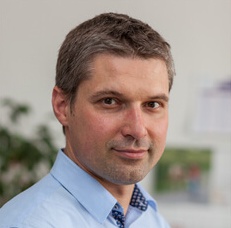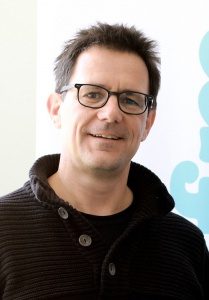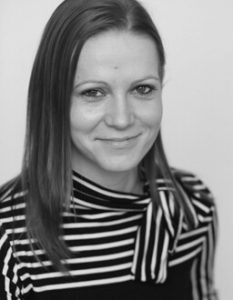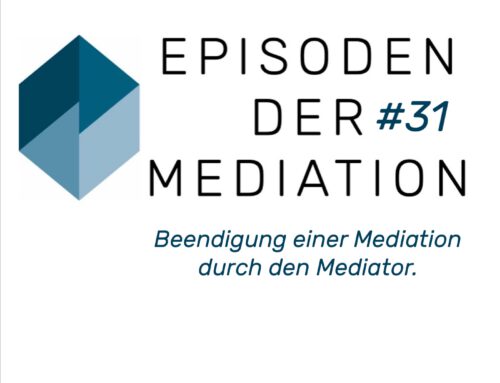Why mediation skills?
12 practitioners reveal what their training in mediation has brought them.
In the INKOVEMA blog you will find a wealth of information and background information on mediation practice and theory. After all, we define ourselves as Intersection of practice, teaching and science. From time to time, however, we also allow colleagues, clients and representatives of other counselling professions to have their say.
This time we asked trained mediators what has changed for them as a result of their training in mediation.
We asked you two questions:
- What has changed for you - in your professional or private life - since you completed your training as a mediator?
- Why did you start the training and what do you use the experience for today in your professional or private life?
You should answer these two questions briefly and concisely, even if you are not actively working as a mediator today.
Some are Employees in business organisations or in the public sector, work as Lawyers, HR managers or works council chairmen. But every single one of them confirms the benefit and help they have gained from their mediation training.
But read for yourself, these are their answers:
- Bernhard Böhm, mediator and trainer
- Barbara Hagedorn, mediator and transaction analyst
- Ute Liepold, mediator
- Ida Schönherr, Chairwoman of the Works Council
- Tilman Metzger, Mediator
- Dr Frank Schreiber, Judge LSozG
- Christoph Häntzschel, Lawyer, Managing Director
- Sebastian Steeck, Legal and HR Manager
- Dominik Wahlig, Managing Director
- Emilia Tintelnot, lawyer
- Emanuela Boretzki, entrepreneur and mediator
- Nadine Hansen, mediator and business sinologist
1. Sebastian Steeck
Lawyer and in-house lawyer, Head of Human Resources, Diakonisches Werk Innere Mission Leipzig e.V., Leipzig
Mediation training (BM) 2009.

Sebastian Steeck, Legal and HR Manager
In my work as a lawyer, sometimes dealing with family law issues, I have experienced how quickly conflicts can escalate and how difficult it is for all parties involved to find a self-determined solution to the conflict. During this time, I developed the desire to be able to offer my clients an alternative way of resolving disputes that results in fewer mutual offences and regularly leads to better solutions.
In my current role as HR manager, I also benefit from my knowledge of conflicts in my day-to-day work, whether as an uninvolved third party in mediation within the company or as a party to the conflict or negotiation. I have realised that I am more successful when I focus more on myself and less on the other party in a conflict, become aware of my own motivation, allow my own feelings instead of suppressing them and thus create the space for an objective discussion.
2. Emilia Tintelnot
Lawyer, Mediator, Berlin
Mediation training at the University of Hagen 2010.

Emilia Tintelnot, lawyer
I think in larger units in both areas and am more creative in my search for solutions because there are no predetermined boundaries. I am also more open-minded and tolerant of people's differences.
I started the training in 2009 because I had already realised during my legal training that most issues cannot usually be resolved permanently and satisfactorily for both sides by purely legal means. I use the therapeutic and practical experience I gained during my mediation training both professionally and privately to be closer to the interests of clients and people, to see them better in their individuality and to direct the perspective of those involved from the past to the future and to give them the opportunity to find a long-term solution to the problem complex on their own responsibility.
3. Tilman Metzger
Licensed mediator and trainer (BM®), owner of the management consultancy Tilman Metzger GmbH, founding member of the Federal Mediation Association, Lüneburg.
Mediation training 1985.

Tilman Metzger, Mediator
I started my mediation training in 1985 for three reasons: 1. because I was anything but a communication hero and wanted to learn more. 2. because I wanted to contribute to supporting an open culture of conflict in all areas of life: Family, work, politics. 3. because I knew: "This doesn't exist in Germany yet! I want to help shape it!"
THE revolutionary experience after my training was: If I can summarise what my conflict partner is saying accurately, I've already half won - and so has he.
4. Ida Schönherr
Works Council Chairwoman and Conflict Management Officer BASF Services Berlin, Business Mediator, Berlin.
Mediation training Steinbeis HS 2011.

Ida Schönherr, Chairwoman of the Works Council
What has changed? – I've become more relaxed since my training, more able to let go of things that I can't change. I would say it has given me a more graceful form of self-confidence (especially in the male-dominated group). And through it all, I've remained as curious as ever – and I ask an insane amount of questions. That's a very clear change ;-)
In general, I no longer take on things that don't concern me, I can leave the problems where they belong and concentrate more on solving my problems and challenges. I no longer feel – rushed– even in my private life– and I act more on the basis of trust. As I said…graceful form of self-confidence…in fact, for me mediation is a strong, quiet form of courage.
5. Dr Frank Schreiber
Judge at the Regional Social Court, court mediator (2013) and arbitrator, Darmstadt.
Mediation training 2012.

Dr Frank Schreiber, Judge LSozG
At first, the world seemed more complicated when I began to perceive people's constructions of reality more comprehensively than before. Then I was relieved to see that the possibilities, paths and potential solutions to problems were multiplying in the same way„.
I had also started the training in order to acquire skills for my work as a judge. Today more than ever, however, I believe that the roles of judge and mediator should not be confused.
6. Nadine Hansen
Self-employed, business sinology, mediator and moderator, Berlin.
Mediation training 2012.

Nadine Hansen, mediator and business sinologist
My mediation training has taught me humility, humility and presence. What is it like to accompany someone without wanting to change them? To accept resistance and strong emotions and work with them instead of against them?
In my work as an intercultural trainer, it always gets very exciting when conflicts come to light. Thanks to my mediation training, I am able to manage these with confidence - and thus add depth to my seminars. We talk about what really matters to the individual beyond hardened positions. And the participants experience: being allowed to have my values and needs and letting others have theirs - that really works!
The training has also changed my management style. I recognise and take resistance seriously and work with team members to find a solution that serves both my goals and theirs. I communicate decisions - even the unpleasant ones - more clearly, not least because I have become much more aware of my own concerns and needs.
7. Dominik Wahlig
Managing Director (Federal Mediation Association), business mediator, Leipzig.
Mediation training (BM) 2009.

Dominik Wahlig, Managing Director
I began my mediation training after several years as a crisis manager in projects, where I learnt that it is usually not factual problems that cause projects to fail, but poor communication between employees and those responsible.
I remember how surprised I was when I was asked to talk about my feelings during my training. And how relieved I was when my trainers handed out a list with the basic vocabulary of feelings. Some of it has actually been incorporated into my everyday communication ;-)
The end of my mediation training was the beginning of my new professional career. I quit my job and became a self-employed business mediator. And it was the beginning of a long learning journey, with new surprises around every bend.
So far, this path has led me to see myself as a process consultant for difficult situations in companies. Personally, my emotions have more space than before, while at the same time they allow me to remain more in control of my actions than before.
8. Emanuela Boretzki
Entrepreneur (Green Heritage Leipzig GmbH), mediator, Leipzig.
Mediation training 2010.

Emanuela Boretzki, entrepreneur and mediator
I decided to do the training because, as a landscape architect, I was always caught between two fronts and often didn't know how to deal with it. Since my training, I've found it easier to change my perspective and get a different view of the situation. This is very beneficial in both my private and professional life. I really enjoy these new challenging tasks, as the mediation methods I have learnt make it possible to achieve satisfactory results more quickly.
9. Christoph Häntzschel
Lawyer, specialist lawyer for labour law, mediator.
Mediation training 2006.

Christoph Häntzschel, Lawyer, Managing Director
The main thing I gained from the mediation training was the realisation that mediation is actually a suitable alternative to traditional legal disputes (if it takes place). Initially, I was sceptical on this point.
The training has given me a considerable gain in understanding how conflicts arise and in techniques for dealing with my own party and the opponent. In my work, I now try to analyse the interests of the other party more closely. This often helps to make a compromise more palatable because both parties to the conflict feel better understood and included. Of course, this doesn't always work. Many parties to a dispute continue to base their actions on the strength of their legal position (according to the motto: I only compromise where I would lose in court).
I have not noticed an increased demand for mediation. There is also rarely a willingness to ask the other party to the conflict. Nevertheless, I am glad to have done the training. After all, many disputes end in negotiations and the exchange or balancing of interests. The techniques I learnt in the mediation course help me to do this. Incidentally, this also helps me in my private life, although I find it even harder not to take out the slingshot every now and then. But I'm biased when it comes to my own affairs.
10. Ute Liepold
Self-employed business mediator, business IT specialist, Bruchsal.
Mediation training 2009.

Ute Liepold, mediator
My mediation training - the first to become a business mediator, the second to become a clarification assistant - has actually had a major impact on my life: I have found my "dream job" and now work freelance as a conflict consultant and mediator in organisations at 90 %. Dream job in inverted commas, because this work often feels anything but dreamlike: I encounter long stories of suffering, strong emotions, defence, mistrust and much more ... At the same time, I can help bring these stories of suffering to an end, and that is extremely meaningful for me.
I have certainly changed and developed personally through training: I can tolerate it even less than before when people (including myself) don't speak to each other or do so in an escalating manner. And if I can influence that, then I do.
11. Bernhard Böhm
Lawyer, mediator, trainer, head of the Steinbeis Consultancy Centre for Business Mediation, Leipzig
Mediation training 1998.

Bernhard Böhm, mediator and trainer
For me, mediation really was "love at first sight", and even after more than 16 years it still fascinates me as it did on the first day. And a lot has changed with the training, because I have made mediation my main profession as a mediator. For me, mediation training was always more than "just" a key qualification. I wanted to make a living from it.
As a mediator is also my first and only profession, it has had a huge impact on me.
In my private life, I naturally have conflicts as a mediator just like any other person. When I am personally affected, the world looks different than in my professional role. In "quieter moments", I might reflect on one aspect or another of my behaviour - and then get annoyed with myself. In this respect, mediation supports personal development in the long term. But without the moral "finger pointing", because mediators are not the "better people".
12. Barbara Hagedorn
Self-employed lawyer, transaction analyst, mediator (couple and family matters), Lüneburg.
Mediation training 2002.

Barbara Hagedorn, mediator and transaction analyst
My further training (in mediation, but also coaching and marriage counselling) has meant that looking at an issue or a problem from different angles has become second nature to me. Thinking/feeling/acting in a partisan way has become more difficult, which is why the lawyer's way of thinking and acting no longer fits. At the same time, my need to satisfy all parties involved has become more differentiated.
I have worked as a lawyer since 1981: a lot of family law, as well as criminal defence for young people and in addiction offences, social and youth welfare issues. I soon realised that satisfactory solutions could only be found if the clients also took personal development steps in addition to the legal support.
Today I still work as a supervisor, in coaching or in mediation (with couples/families, on succession issues and internal conflicts) because of the change I have outlined.
In my private life, I am pleased that friends and godchildren occasionally seek my advice. I'm more relaxed when it comes to dealing with questions from ageing parents and sharing tasks with siblings. My extensive experience also makes contact with neighbours easier.
Many thanks to everyone involved for making this interesting and impressive post possible! It has become clear to everyone that the training has not „passed by without a trace“ but has had a lasting impact on their working and private lives.
What experiences have you had with your mediation training or similar further training? Or are you considering whether you would like to start such a training programme? But be careful: after that’it's a different story ;-)

















Leave A Comment